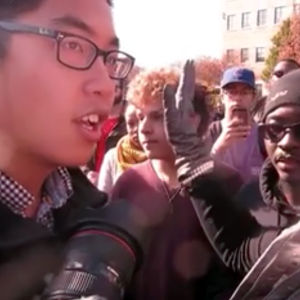Editor’s Note: For an alternative viewpoint, see: Counterpoint: Founders Didn’t Intend to Protect Hate Speech When They Wrote the First Amendment
Outrage continues at Yale as the campus grapples with how to balance fostering social equality and protecting free speech. This debate has revealed far too many of our nation’s brightest students believe free speech and promoting social equality are at odds and remain unaware of free speech’s vital importance. We must take this opportunity to make the case to the rising generation why free speech matters and why curtailing it could create more problems than it solves.
The confusion over free speech is illustrated at Yale by student uproar over an email early childhood education lecturer Erika Christakis sent to the students of the residential community she overseas with her husband, professor Nicholas Christakis. The email expressed skepticism over university attempts to regulate student Halloween costumes and instead urged students to exercise their own judgment and if necessary use free speech and open dialogue to combat offensive costumes.
Students have since demanded the Christakises be removed from their roles at Silliman College because the email’s words had hurt them and made their home unsafe. The controversy did not center on whether one should be allowed to wear offensive costumes, but rather if one ought to be allowed to say they support allowing that free expression. Students later confronted Nicholas Christakis in the courtyard demanding an apology. The dialogue plays out like a Free Speech 101 class:
“I am sorry for causing you pain,” but Christakis reiterated: “I stand behind free speech, ” to which the students challenged: “Even if it’s offensive?” asked one, “Even when it denigrates me?” asked another. Christakis reaffirmed: “Even when it’s offensive, even when it denigrates you — even though I don’t agree with the content of the speech. I have the same objections to the speech that you do! … But I defend the right of people to speak their minds. Including you!”
For some, this may have been the first time they heard that allowing free speech is not synonymous with endorsing its content. Given this misunderstanding, it’s perhaps more understandable why students felt disrespected.
The confusion over free speech’s purpose suggests we must reiterate its vital importance:
1) What constitutes offensive speech can be highly subjective. For instance, one student’s war protest could be viewed as offensive to veterans, or a BlackLivesMatter protest could be viewed as “anti-cop” to others. Or stating one’s belief that “America is the land of opportunity” while innocuous to some, could be officially dubbed a “micro-aggression” and thus nearly an act of violence by others.
2) Free speech can be an asset to the less powerful against the powerful. If free speech were not an asset of the less powerful, why in the 1830s did Southern state legislatures pass laws preventing postmasters from delivering abolitionist pamphlets? Or why did the FBI send threatening letters to Dr. Martin Luther King implying he stop his efforts or even commit suicide? The power of speech to combat oppression is a central reason the powerful have sought to hamper it.
3) More speech, not less, is the best tool against offensive speech. Campus speech codes treat the symptom, not the cause — which is bigotry. As the ACLU put it: “When hate is out in the open, people can see the problem. Then they can organize effectively to counter bad attitudes, possibly change them, and forge solidarity against the forces of intolerance.”
4) Free speech is indivisible. Tactics used to silence others’ offensive speech today could one day be used to silence our speech in the future. Conversely, laws that protect offensive speech can also be used to defend justice activists’ rights. For instance, the ACLU points out that the precedent used to defend 1960s civil rights demonstrators was based on a 1949 case defending an ex-Catholic priest who delivered a racist speech.
We cannot overlook the fact that much of what’s driving outrage on college campuses is a result of genuine frustration over racial discrimination in both its explicit and implicit forms: this must be addressed. And this is all the more reason for universities to show students how to exercise their speech rights to combat oppression: instructing how to listen to different arguments, evaluate them, and respond with civil arguments based on evidence.
The course of history has not been able to avoid the power of ideas, to be persuaded by reason. Let us reiterate to the next generation these lessons and hope to persuade them to not give up on freedom, because freedom is what ultimately pushes our country forward.

